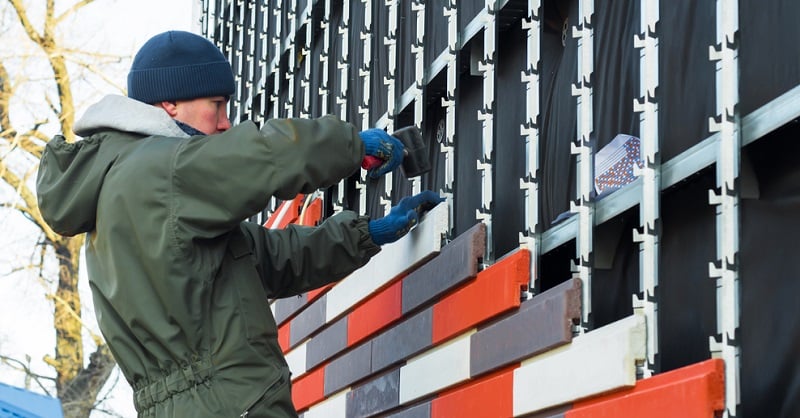Ministers have pledged to use an estimated pot of £450m to resolve Scotland's cladding crisis.
The Scottish government has said that homeowners with flats, which have external cladding, will be offered free safety assessments.
As part of this pledge, a single building assessment will be undertaken on a whole building rather than by an individual flat owner.
As a result, affected buyers and sellers will not need to pay for the current External Wall System (EWS1) report on their individual property.
At least 85 high-rise blocks and over 130 other buildings, mainly schools overseen by Scotland’s 32 local authorities, contain high-pressure laminate (HPL) panels.
A further 23 of Scotland’s 774 high-rise buildings reported polyethene-type ACM panels (ACM-PE), another combustible material.
As well as this, forms of automatic fire suppression equipment were reported in only 39% of high-rises.
There are a reported 46,530 flats in high-rise buildings overseen by local authorities across Scotland.
Paul Broadhead, head of mortgage and housing policy at the BSA, said: "The action announced by the Scottish government is to be welcomed as a positive step forward.
“This announcement should give flat owners and occupants in Scotland hope that the sales market can be restored.
"The understanding demonstrated by the Minister for Local Government, Housing and Planning that the root cause of the whole issue is one of safety, and that addressing this will lead to solutions that will free up property transactions, is absolutely right.
"Scotland has faced unique tenure related challenges given the co-ownership structure of blocks of flats.
“Given this, the proposals for a single building assessment funded by the Scottish government should, if implemented quickly, offer an innovative solution to help consumers waiting to buy or sell.
"We are committed to working with the Scottish government to support the implementation of the recommendations to restore confidence to all flat owners in Scotland."
In a letter to the Scottish Tenants Organisation Kevin Stewart, Minister for Local Government, Housing and Planning, outlined: “I would like to stress, that the resolution of this situation is not in the gift of any single organisation to fix.
“The Scottish government has been working closely with industry bodies, homeowners and others through a number of working groups, to identify the number of buildings affected and identify all of the related issues and how these could be addressed.
“It is my intention to set out to our parliament later this month our plan to address the issues of cladding in a logical way that that is clear, about the overall need and is targeted accordingly.
“In identifying the role of the Scottish government, I need to be sure that we are acting in a way that has no unforeseen consequences such as being a disincentive for others to play their part.
“Regrettably this is taking longer to resolve than I had would have liked for a number of reasons.
“The issues are complex and we must be clear that we have considered and taken all action that we can before setting out the next steps.”
Charles Roe, director of mortgages at UK Finance, also responded to the news: “UK Finance welcomes the Scottish government’s ambitious plans to assess buildings for fire safety issues, which takes into account the unique legal tenure position in Scotland.
"If successfully implemented, the new Single Building Assessment will be an important and welcome initiative to get the housing market moving in Scotland.
"We will continue to work with Scottish government as it develops the detail needed to deliver the new approach.”
Nic Mayall, President of the Property Managers’ Association Scotland, said: “We welcome today’s announcement by Kevin Stewart, Minister for Local Government, Housing and Planning.
"This will help bring an end to the crisis which has caused such turmoil and anxiety for so many flatowners throughout Scotland.
“We believe this announcement gives our membersthe opportunity to assist homeowners impacted by this situation with a potential solution, while further work is carried out on a resolution to long-term legislative issues.



